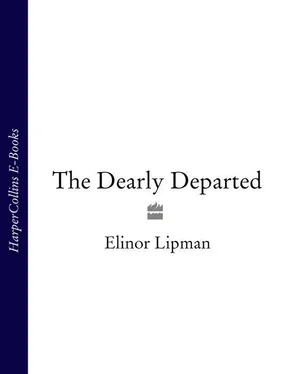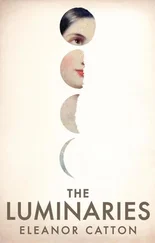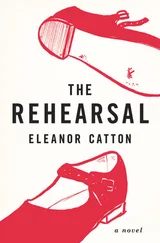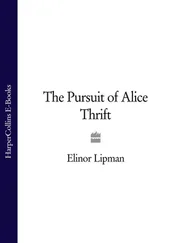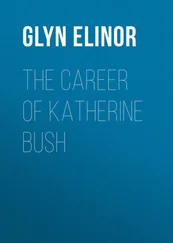Fletcher sounded more annoyed than mournful when he reached Sunny the next morning. “Under the circumstances,” he said, “I would have thought you’d have returned my call.”
“You didn’t leave your number,” said Sunny.
“I’m sure you can appreciate that I wasn’t thinking about secretarial niceties last night,” he snapped.
“Such as ‘I’m so sorry about your mother’?”
“I didn’t know her,” he said. “And at the time of my call I believed she was still alive.”
Sunny quietly slipped the receiver into its cradle. It rang seconds later.
“My father’s dead because he was watching television with someone who had a defective furnace,” blared the same voice from her earpiece. “He was as healthy as a horse. How do you think I feel? And on top of that, some backwater police chief delegates to me the task of calling the date’s daughter.”
Forcing herself to sound composed and rational, Sunny said, “Are you the only child, or is there a humane sibling I can do this with?”
He paused. “Unfortunately, I’m it.”
“You don’t have to torture yourself with the idea that this was some blind date that went awry—that he was in the wrong place at the wrong time—because he was there every night. She was his fiancée.”
Fletcher said, “Unlikely. I never met her.”
“She had his ring, and the date was set.”
After a silence, he asked, “Were you invited to a wedding?”
“Of course I was,” Sunny said.
Reached by phone, the funeral director said he preferred not to stage a wake in a theater, even if it had once been a house of Congregational worship. Sunny heard his flimsy argument, which was grounded in what she felt was personal convenience, and answered in a shaky voice, “I think it’s what my mother would have wanted. I don’t think I’m being unreasonable, and if it requires a little creativity and flexibility on our part, so be it.”
No one in King George had ever asked Dickie Saint-Onge for creativity or flexibility, so he rose to the occasion, promising to accommodate the loved one’s undocumented dying wishes: a coffin in a hardwood that was stained to resemble ebony, white satin interior, no variation on her hairdo, which should be styled by her regular hairdresser and not by some mortician. Sunny herself would get permission from the King George Community Players to have her mother buried in her Mourning Becomes Electra costume or the black dress she wore in Six Characters in Search of an Author . He would tell the town’s only florist this: no daisies, no carnations, no mums. Say that the daughter wants flowers cut from the vines creeping up her mother’s porch, in combination with the Russian sage by the mailbox. And if they aren’t in full bloom, find wisteria on someone else’s trellis around town. Everyone knew Margaret. Everyone loved her.
Fletcher announced that he’d be flying to King George on the morning of the funeral with an associate. Unfortunately, he couldn’t get away one moment before that, due to the campaign. Was there an airport nearby?
“Forgive me for not owning a copy of your résumé, but what campaign are we talking about?”
“Right now, a congressional campaign.”
“And you’re too busy to get away?”
“That’s not what I said. I’m coming up for the funeral.”
“On the morning of. In other words, your father died and your boss won’t give you a few days off?”
“Just the opposite: She very much wants to attend the funeral, but we can’t get away until Saturday morning, because there’s a state fair—”
“What state?” Sunny asked.
“New Jersey. Sixth Congressional District.”
“What’s her name?”
“Emily Ann Grandjean. She wants to be there,” said Fletcher. “For both of us.”
“How kind,” said Sunny. “Too bad she can’t spare you for a couple of days.”
“Every second’s scheduled. It’s brutal. Our election’s in September.”
“So I imagine that you won’t be staying very long after the funeral.”
“To what end?”
“To go through your father’s things and decide what you want to keep. Someone’s got to do his packing.”
“Packing?” Fletcher repeated, as if Sunny had said sharecropping . “You pay people to pack—moving companies pack. They can do a whole house in two days.”
“If it’s the cottage I’m thinking of on Boot Lake, it won’t take you very long.”
“Whatever,” said Fletcher.
“I’m going up tomorrow. You can reach me at the King’s Nite Motel,” said Sunny.
“Fine.”
“Do you know my name?” she asked.
“Sunny?”
“Batten,” she said, and spelled it.
The night she returned to King George, the local news reported that a motorist, after running the town’s only stop sign, had shot the chief of police. Sunny, watching on the motel television, first thought, Good—people in this town will have something to talk about besides my mother; and second, It’s him, Marilee’s brother, the cop. She crawled from the head of her bed to its foot for a closer inspection. Indeed, Chief Joseph J. Loach was Joey Loach, the kid who’d swaggered around the halls of King George Regional more than a dozen years before, the detention regular and goofball who could fold his eyelids up and inside out, now a hero wounded in the line of moving violations. Because his bullet-proof vest had saved him, Chief Loach was being presented a state-of-the-art model by the vest’s proud manufacturer, bedside. “I guess it wasn’t my time,” Joey told the reporter.
Mentioned obliquely in the hushed wrap-up: The perpetrator was still at large.
CHAPTER 2 Meet you at the Lake
Actress” in the obituary’s headline, especially without the modifier “amateur,” would have delighted Margaret Batten, who’d been stagestruck in middle age, recruited at the beauty parlor by the wife of the superintendent of schools. Might Margaret, she asked, consider a tiny but vital role in the King George Community Players’ fall production of The Bad Seed ? Duly flattered and only briefly deflated to learn that she had no lines, Margaret threw herself into her first production—understudying, baking for the bake sale, and embracing the subculture that was the King George Community Players. She was a woman alone, a divorcee looking for a social life in a town of 1,008 year-round residents.
Sunny was in high school when the acting bug burrowed under her mother’s skin. They lived on the edge of the King George Links, a semi-private golf course, in a small house with rotting trellises, leased for a pittance under an odd historical footnote concerning a runaway slave and a host abolitionist, now moot and inapplicable. Still, it carried with it a legacy and the taint of a scholarship awarded on the basis of need. Historically, poor people lived in the gray bungalow, visible from the seventeenth fairway; their underprivileged children fished waylaid golf balls out of the course’s water traps. Margaret had qualified as a lessee under the unwritten widow-with-child clause: Sunny’s father was dead, or so the tale on the application went.
Margaret was not a habitual liar, but the little house had been vacant when she moved to King George. A real estate agent, sizing her up correctly as a single mother without means, said, “I know I’m shooting myself in the foot to let you in on this, but there’s this little house that belongs to the town …” Margaret asked to see it. The pine floors had been stripped of linoleum and left a tarry black; instead of doors, faded blue burlap hung from curtain rods between rooms, and the kitchen sink was a soapstone trough. But Margaret was a great believer in soap, water, ammonia, bleach, lemon oil, paint, shellac, wallpaper, and fresh flowers. She could see the small provincial print she’d choose for fabrics and the museum posters of lily pads and haystacks she’d frame for the walls. “How much?” she whispered.
Читать дальше
